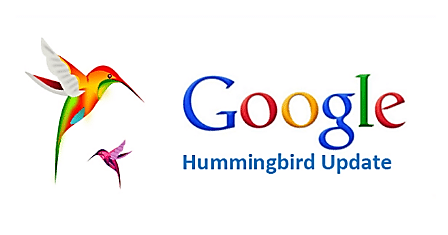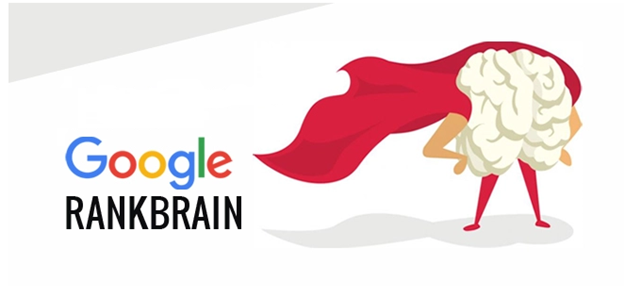List Of Machine Learning Algorithms Used To Train The Google Search Engine
In Brief
- You will find the best dissertation research areas/topics for future researchers enrolled in Computer science & Engineering.
- In order to identify future research topics, we have reviewed the machine learning algorithm. (recent peer-reviewed studies).
- First, this article gives you an idea about how the technology can change our lifestyle.
- Then, this article provides you latest updates on google algorithm.

When we first heard about artificial intelligence (AI) and machine learning (ML) techniques, it was quite fascinating and scary. But once we got it figured out, we understood how the technology can change our lifestyle (Shobha & Rangaswamy, 2018). Machine learning is slightly similar to artificial intelligence, but the differences begin to get a little confusing as we implement them. Machine learning is a program developed for problem-solving and it uses mathematical functions to generate a solution (Laskey & Levitt, 2001). Based on the data provided, the machine learning algorithm will achieve that task, with very little or no additional instructions. Artificial intelligence, on the other hand is the science, underlying the development of systems which either have or tend to have, human-like knowledge and similarly interpret information. we began to ask practical questions like how ML is used in search engine and what kind of ML is used my Google,,etc. Students can also assistance with dissertation writing help on machine learning algorithm. Here the list of machine learning algorithms used by Google search engine.
You will find the best dissertation for future researchers enrolled in Engineering & Technology. These topics are researched in-depth at the University of Glasgow, UK, Sun Yat-
Google’s Machine learning algorithms and their updates
Google’s algorithms are complicated group of frameworks used for obtaining data from its search index and providing the most exceptional possible outcomes for a question instantly. Using a mixture of algorithms and multiple ranking signals, the search engine delivers web pages ranked by significance on its search engine results pages (SERPs). Google did just a couple of enhancements to its algorithms in its earlier years. Today, every year Google uses thousands of modifications and upgrades. Some of these changes are so small they go unnoticed altogether. Sometimes, the search engine periodically rolls out significant algorithmic updates which have a huge effect on SERPs. Also, get assignment writing help on artificial intelligence and google algorithm in a high quality. We have collected a list of Google’s launches, upgrades, and refreshments algorithms that have been rolling out over the years, List is as follows,
- Panda
- Penguin
- Pirate
- Exact match domain (EMD)
- Hummingbird
- Pigeon
- Mobile-Friendly Update
- RankBrain
- Possum
- Fred

Panda
Google Panda is a machine learning algorithm utilised to allocate a content quality score to website pages as well as down-rank the websites with thin content, spammy or low-quality. In brief, The Google’s Panda Update is a search filter that stop websites with poor content from accessing Google’s top search results. Yup, Panda has a passion for new content. The word panda derives from Navaneet panda, a Google developer who created this software and it was launched in February 24, 2011.

Penguin
Penguin updates launched in Apr 24, 2012 and this updates deal with the quality of the links. The objective of the penguin updates is to find down-rank websites with abnormal connection profiles, which spam the search outcomes by utilising manipulative link strategies. In brief, the penguin was designed to address a severe flaw in Google’s framework that allowed a large number of low-quality links and keyword over-optimization of pages to ‘ trickle ‘ their algorithm.

Pirate
Google’s Pirate Update was designed to avoid the websites which have received multiple allegations of copyright violation from being well ranked in Google searches. The large percentage of impacted websites are fairly large and well-known sites which rendered illegal content like books, music or movies available free of charge to users, especially torrent websites. The Google pirate update launched in Aug 2012.

Exact match domain (EMD)
Google launched the EMD update in Sep 2012. Exact Match Domains updates are a new filter, designed to avoid certain low-quality websites Such websites are assigned to avoid coming on the first page of the search. Damaged websites, even from good brand identity and elevated quality content less anticipated. After the EMD update, top ranked poor quality are totally removed.

Hummingbird
Google Hummingbird is a big algorithm shift which involves interpreting search results especially longer, verbal searches as well as delivering search results which suit the purpose of the user, instead of specific parameters within the request. Hummingbird gives understanding of the intention and contextual significance of terms utilized in a query. The word Hummingbird derives for being “accurate and speed”. It has been launched in Aug 22,2013

Pigeon
The Pigeon Update offers more specific search results for users who are looking for local responses to their questions. The update is intended to improve the local listing rankings in an exploration. This update yields results depending on the location of the user as well as listing the accessibility in the local database. The Pigeon update launched in July 24,2014.

Mobile-Friendly Update
Mobile-Friendly update launched in Apr 21,2015.

RankBrain
RankBrain is an artificial intelligence (AI) machine learning program that lets Google fully grasp the significance behind the questions and offer users with the best possible search results. In addition, it helps in rating web sites. Google also stated that the RankBrain ranking algorithm is the third most significant element in Google updates.. RankBrain is launched in Oct 26,2015.

Possum
The possum update is launched in Sep 1,2016. Possum is an upgrade to Google’s local search ranking algorithm, which determines which businesses can turn up in local search results, often keeping company listings out of search outcomes.For the results of Google Local Search, Google has updated the possum algorithm. Business websites with identical addresses having a virtual address, where specific business are screened out of the top Google search results to avoid duplicates. Possum update’s primary motivation is to broaden the local results and severely end spammy activities.

Fred
Google Fred was a sequence of updates which took place in March 2017. Google Fred has had a significant influence on website rankings globally for Google. It is an update to an algorithm aimed at black-hat techniques. It assigns websites with lots of monetized content and black hat technique a lower rank.

References
- Han, J., Kamber, M., & Pei, J. (2012). Introduction. In Data Mining (pp. 1–38). Elsevier. https://doi.org/10.1016/B978-0-12-381479-1.00001-0
- Laskey, K. B., & Levitt, T. S. (2001). Artificial Intelligence: Uncertainty. In International Encyclopedia of the Social & Behavioral Sciences (pp. 799–805). Elsevier. https://doi.org/10.1016/B0-08-043076-7/00395-8
- Shobha, G., & Rangaswamy, S. (2018). Machine Learning. In Handbook of satistics 38 (pp. 197–228). https://doi.org/10.1016/bs.host.2018.07.004

 Previous Post
Previous Post Next Post
Next Post